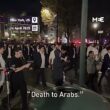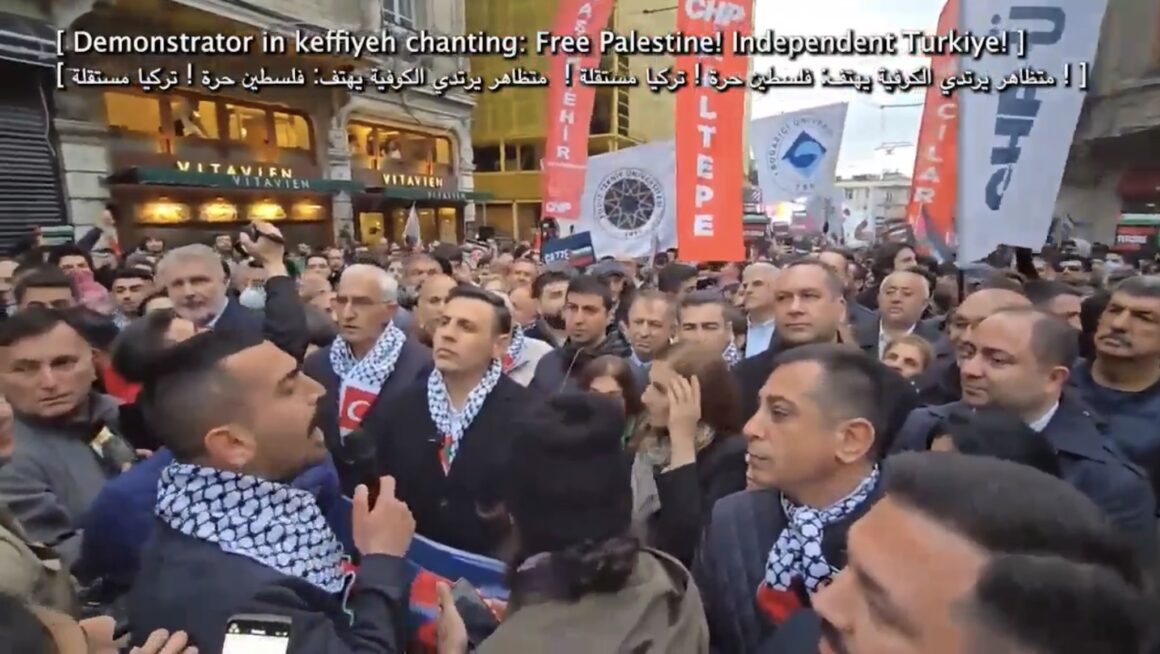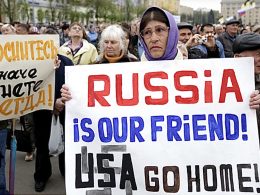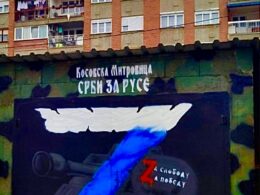Above: a screenshot of footage from last month’s pro-Palestine protest in Turkey, which the police violently suppressed
Events have a life of their own. This has been shown by the Luigi movement, the mass reaction of sympathy towards alleged CEO shooter Luigi Mangione. The act which this movement is centered around was spontaneous in nature, and wasn’t ordered by any revolutionary political entity; but because of the popular struggle that came out of it, it had a real impact on our class war. The global anti-imperialist movement needs to internalize the lesson from this, which is that we cannot underestimate the importance of popular struggles.
We’ve seen the pivotal role played by the Donbass miners in creating political will for Russia’s anti-fascist operation; we’ve seen how the Iranian masses have pressured their government into giving up its previous non-retaliatory stance; we’ve seen the mass pro-Palestine revolts throughout the Arab world bring the Gulf dictatorships towards existential fear. All of this means that whenever the popular masses spring into action, we must make sure we’ve fully investigated these developments, and found all of the revolutionary potential within any given mass movement or trend.
This does not mean bowing to the spontaneity of the masses, as Lenin warned against. And it certainly doesn’t mean ignoring the influence of NGO psyops on protest movements and discourses; this is something that Alexander Dugin recently expressed caution over when it comes to the demonstrations in Turkey. Wrote Dugin:
Erdoğan is left without friends after betraying everyone several times. I think his situation is not enviable. At the same time, we ourselves must be very cautious with the protests that are unfolding, because behind them are the same organizers as in most colour revolutions, including the current ones in Serbia. At the same time, the globalists involved in the protests are a minority — the majority are ordinary people who are truly dissatisfied with various political excesses in leadership. Therefore, there are also objective reasons for what happens – it seems that Erdoğan has simply exhausted his scope for error. Nevertheless, he continues to make mistakes.
Amid this need for wariness when it comes to how we view Turkey’s protests, and which parts of the protests we should endorse, the question arises: where exactly are the genuine elements? Where is the revolutionary potential to be found amid an environment in which controlled opposition groups are so abundant? This is something all anti-imperialists need to ask themselves, not just so that we can correctly analyze Turkey but so that we can correctly analyze our own conditions.
The imperialists have their hands in practically all countries, and are always ready to mobilize their color revolution network when a protest movement emerges. In many cases, the NGO agitators themselves are responsible for activating protests, and not the other way around. So in scenarios of popular unrest, how do we tell which forces to support, or to ally with?
The case of Turkey provides us with deep insights into the art of investigating a development within the masses. While looking into the protests, I’ve found that a crucial thing to do is take note of which demonstrations or groups are allowed to be readily visible, and which ones aren’t. This is what I’ve taken away from a highly suspicious recent incident within the world of movement journalism; one where the narrative managers strategically elevated protests that were seen as compatible with the Erdogan regime, while hiding the ones that were genuinely transgressive.
Last month, Eye on Palestine—an account with over thirteen million followers across multiple platforms—posted pictures of crowds with Palestine flags, saying: “Protests are currently taking place in Istanbul, Turkey with thousands showing their solidarity with Palestinians in Gaza, denouncing Israels [sic] ongoing genocide.” But a community note was then added to the post, reading: “This photo shows a government-backed rally. On April 19, a pro-Palestine march organized by the opposition CHP [Republican People’s Party] in Istanbul was blocked by police before it could begin.” Commenters pointed out how they had sent Eye on Palestine information about the other protests, yet the account was ignoring all of it.
There’s footage of the police beating mass numbers of Gaza protesters, and some of the biggest ostensibly pro-Palestine information distributors have no interest in covering this. They’ve witnessed a moment in which police told demonstrators they were breaking the law by chanting “free Palestine,” and these actors feel like this isn’t worth drawing attention to. It’s apparent that for the “pro-Palestine” discourse actors which are in thrall to the agenda of NATO, the NGOs, and big tech, there are certain kinds of Palestine protests that can’t be mentioned.
The main purpose of this narrative manipulation is to obscure which actors are genuinely anti-imperialist; to confuse not just the Turkish masses, but the global masses, about what a truly revolutionary action looks like. A source like Eye on Palestine, which is ideologically associated with the left, would not normally have any motivation for protecting the Erdogan regime. Erdogan is a far-right politician who’s been getting gargantuan backlash for his complicity in the Gaza genocide, so you’d think that the most popular pro-Palestine pages would publicize the actions of his opponents. But the fact that there’s a deliberate effort to conceal these actions reveals just how threatening they are.
When a mobilization comes from an authentic current within the masses, and when it advances a revolutionary agenda like anti-Zionism, the narrative managers will want to suppress discussion of it as much as they can. The most telling part of this story is that the imperialist media outlets have avoided covering the opposition’s Palestine protests—and the appalling state violence directed against them—even though these outlets tend to dislike Erdogan himself.
Within NATO propaganda, Erdogan is often placed in the same category as Putin or Xi, because he plays both sides in the new cold war. Yet from The Guardian, the New York Times, and the other imperial news sources that claim to stand in solidarity with Turkey’s people, there’s been no material covering the pro-Palestine aspect of this protest wave. The legacy media prefers to cover the Turkish protests that are connected to the NGO meddling network. And the imperialism-compatible “pro-Palestine” sources only cover the Palestine demonstrations that the regime doesn’t treat as a danger.
The imperial hegemon is not necessarily invested in keeping Erdogan in power; this is clear from how unfavorably its media treats him. If Erdogan falls, though, the hegemon will want to make sure he isn’t replaced by a leader who’s actually anti-imperialist. Amid all of the co-optation and propaganda that the imperialist meddling network is carrying out across the Turkish left, within these demonstrations there is emerging a popular force that truly threatens international capitalist power. That could make it so Turkey cuts off the Zionist entity, and refuses to act as Washington’s new proxy in West Asia.
To help ensure that this force wins out against the NGOs, we all must be careful to avoid uncritically supporting any protest we see. We also must look for which protest currents and political forces are being opposed not just by the Erdogan regime itself, but also by the wider imperial sphere. Popular struggle is only going to intensify around the globe, and the empire will try to capture this mass energy. It will send in its handlers and front organizations, then selectively platform the protests based on which ones are imperialism-compatible. What the Turkey protests teach us is that in our task of discerning which currents are authentic, so often the answer lies within which currents are being hidden from us.
In the class war, not everything is always as it seems; a story can have hopeful aspects that aren’t so readily apparent, and that the system is deliberately concealing. The revolutionary actors who can overcome this engineered confusion, and find where their real allies are, will be the ones which successfully navigate the multipolar era.
————————————————————————
If you appreciate my work, I hope you become a one-time or regular donor to my Patreon account. Like most of us, I’m feeling the economic pressures amid late-stage capitalism, and I need money to keep fighting for a new system that works for all of us. Go to my Patreon here.
To keep this platform effective amid the censorship against dissenting voices, join my Telegram channel.








